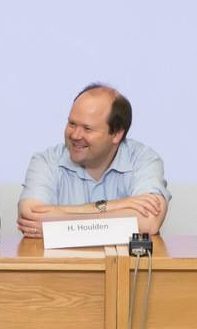What are the aims of this project?
Identifying the genetic cause and understanding the underlying biology of a condition are often the first important steps towards developing effective therapies. Early-onset neuropathies are a group of neuromuscular conditions that damage the nerves and affect people early in life. These include Brown-Vialetto-van-Laere (BVVL) syndrome, Fazio-Londe syndrome and some severe forms of Charcot-Marie-Tooth disease (CMT). They can be difficult to diagnose as symptoms often vary between people and there are many different genetic causes. Many patients remain undiagnosed and there are currently no effective treatments.
This PhD studentship aims to identify new genetic changes that lead to early-onset neuropathies. The researchers will collect DNA samples from patients and families who have not received a genetic diagnosis. They will carry out whole genome sequencing to search through each person’s DNA and detect genetic changes (also called mutations). The cost of this sequencing will be completely covered by Genomics England (the Government-funded company leading the 100,000 Genomes Project).
The researchers will then investigate the biological consequences of these genetic changes. They will study cells originating from people with the condition, as well as fruit fly models that have the same genetic changes as humans. Studying these cell and fly models will help explain why people with these genetic changes develop symptoms of neuropathy.
Why is this research important?
This project will help give a better understanding of what is going wrong in early-onset neuropathies and how this leads to symptoms. This knowledge is important for the development of future treatments for these conditions, which currently have no effective treatment options.
How will the outcomes of this research benefit patients?
Patients and families taking part in this project will receive a genetic diagnosis, which is important for a number of reasons (for example, being able to make informed decisions about family planning). The project will identify genetic changes that have not been associated with early-onset neuropathy before; this information will be passed onto diagnostic laboratories therefore helping with the diagnosis of future patients.
The findings from this project will also be the starting point for research into potential therapies, which could have invaluable benefits for people with early-onset neuropathy.
How might this research benefit people with other neuromuscular conditions?
Some of the biological processes or pathways that are disrupted in people with early-onset neuropathies are also disrupted in other neuromuscular conditions. Developing therapies that target these pathways could therefore potentially benefit people with other neuromuscular conditions.
Grant information
Project leader(s): Professor Henry Houlden and Professor Mary Reilly
Institute: UCL Institute of Neurology
Condition(s): Hereditary neuropathies, CMT
Duration: three years, started 2017
Total cost: £88570
Official title: Investigating severe, early-onset neuropathies using genome, transcriptome and functional genetic analysis

It is only through your contributions that we can continue to fund the vital work that takes us closer to finding treatments for muscle-wasting conditions. Donate now and help to change the lives of thousands of people living with these conditions. Thank you for your support.
